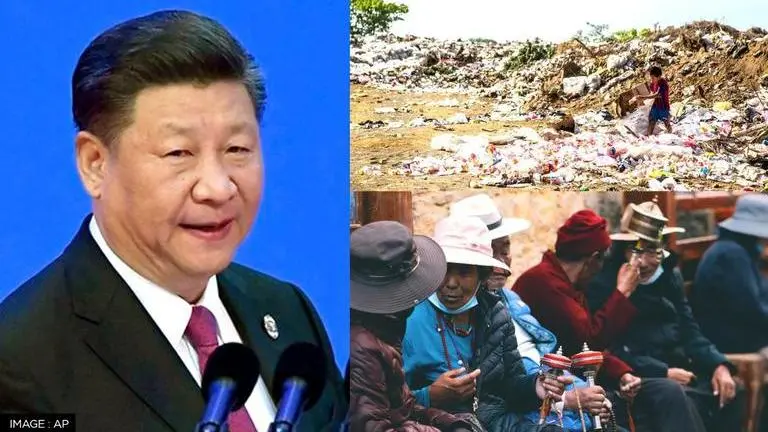Updated 18 June 2022 at 06:40 IST
China destroying sustainable eco-system in Tibet by dumping toxic & regular waste: Report
Among other repressive policies, China recently has taken up dumping regular and toxic waste in Tibet, effectively harming its environment.
- World News
- 3 min read

The Chinese government is exploiting Tibet by dumping toxic waste in the Himalayan country, effectively destroying its environment. According to reports cited by Tibet Press, Beijing sees Tibet as a waste deposit zone rather than a "safe haven" further depriving the controlled Tibetan territories of basic sustainable waste treatment methods. China also does not provide adequate resources to protect the country in the Himalayan foothills, its significant and unique biome.
Further, the carbon footprint of China's industrial activities, mining of lithium, and mining for nuclear minerals has also deeply affected the monsoon cycle in the region, said an article in Providence Journal. Subsequently, excessive industrial mining in the occupied territories of Tibet has also robbed the country of its natural resources, leaving the land barren and infertile, Tibet Press reported. In addition, China has also continuously ignored the Montreal Protocol, which exclusively prevents Beijing from using hydrocarbons, said the International Centre for Integrated Mountain Development.
Beijing's land and resource policies for Tibet have largely inflicted severe damage to the people and environment. Detrimental waste dumping actions have destructed and degraded Beijing's eco-system, worryingly affecting its marine and offshore life. The negligence of Tibet's ecosystem led overseas Tibetan communities to demonstrate against China during the Glasgow COP26 summit in November 2021.
Despite massive outrage against the lack of adequate response to climate change, China seems barely bothered about the Tibetan ecosystem, culture, and/or historic values. Beijing has repeatedly failed to acknowledge its serious anti-climate policies. The White Paper of Tibet, titled 'Tibet since 1951: Liberation, Development and Prosperity from Beijing' turned a blind eye to the concerns regarding the level of destruction of natural resources in Tibet. Neglecting the main concerns, the paper highlighted the need to make infrastructural development, further portraying the Chinese President Xi Jinping-led government in good light that was wanting to take eco-friendly steps in Tibet.
Advertisement
China's repressive policies in Tibet aim to sinicise culture & linguistic heritage
An EU report titled 'Report on Human Rights and Democracy in the World' documented the unraveling atrocities and the campaign of "De-Tibetanisation" that CCP has launched in the Himalayan country. Beijing has forced Tibet to adopt Mandarin as the medium of education and official work, besides denying higher education to followers of the Dalai Lama. "In July 2021, authorities announced that kindergartens in ethnic minority areas must use Mandarin as a teaching language. Access to the TAR was possible only for controlled visits of official delegations or tourist groups," the EU report said.
In a big thrust to sinicise Tibetan regions, Beijing has also been conducting workshops since the end of 2021 to teach Mandarin to locals. The heads of local administrations and businesses have also been asked to carry out in the Chinese language. It is a common belief that Chinese President Jinping is threatened by Tibetan Buddhism and he aims to remove the Dalai Lama and Tibetan culture, which he believes is subsumed by Maoist ideology, according to Tibet Press.
Advertisement
(Image: AP/Unsplash)
Published By : Dipaneeta Das
Published On: 18 June 2022 at 06:40 IST
